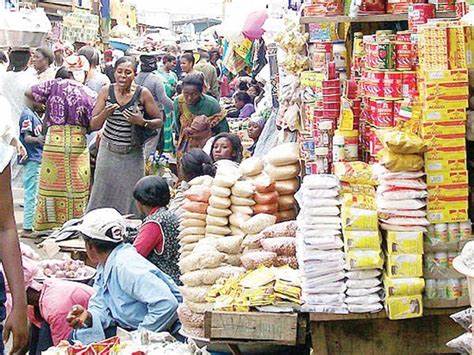According to an analysis of the “Selected Food Price Watch,” a report issued monthly by the National Bureau of Statistics, Ebonyi and Abia states were at the forefront as food prices increased by 31% between July 2022 and July 2023.
The food products chosen include basic essentials including rice (1 kg), beans (1 kg), bread (500 g), tomatoes, meat, wheat (2 kg), garri (1 kg), and palm oil (1 bottle).
The price of yam increased by 42% from N389.75 in July 2022 to N539.41 in 2023, according to the reports, representing the greatest food price increase ever.
The cost of a kilogramme of rice, which rose from N467.80 to N653.49 in a year, came close behind.
Similar to this, the price of palm oil increased by 35% during the period under consideration, from N890.67 to N1208.62.
Garri (1 kg) increased by 33% from N323.17 to N429 while the price for 500 grammes of sliced bread increased from N486.27 to N651.78 (+34%).
Tomatoes costing between N446.81 and N557.96 per kilogramme, wheat costing between N1094.72 and N1419.14 per kilogramme, and beef costing between N2118.84 and N2758.13 per kilogramme were other staple foods that experienced large price increases.
Additional examination of the research revealed that the highest food costs were seen over the course of a year in South-Eastern states, particularly those led by Abia and Ebonyi.
While this was happening, the North Central region’s states (Kogi, Niger, and Benue) saw the lowest food costs.
The National Bureau of Statistics (NBS) stated that the main cause of headline inflation, which rose from 24.08 in July to 25.80 in August and was driven mostly by the food inflation rate of 29.34 percent in August, in its most recent Consumer Price Index, a report that measures inflation.
According to NBS, “The rise in food inflation on a year-on-year basis was caused by increases in prices of oil and fat, bread and cereals, fish, fruit, meat, vegetables and potatoes, yam and other tubers, vegetable, milk, cheese and eggs.”





